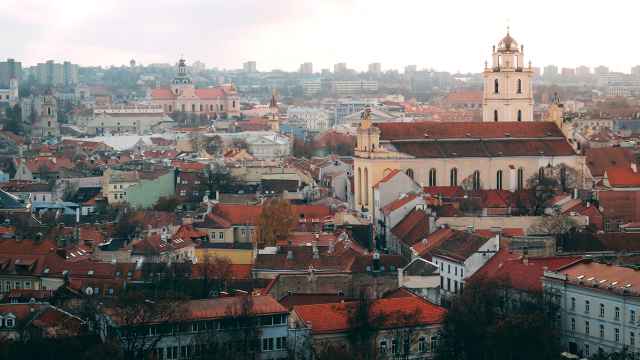China, the world's largest consumer of potash, has acquired a 12.5 percent stake in Russia's Uralkali, the leading producer of the soil nutrient, Uralkali said Tuesday.
The deal, a rare example of the Chinese acquiring direct ownership of Russian natural resource assets, took place amid speculation that tycoon Suleiman Kerimov might sell his large stake in Uralkali over a dispute between Russia and Belarus.
Chinese sovereign wealth fund China Investment Corp, or CIC, received the stake in Uralkali in a bond exchange deal with Wadge Holdings Ltd.
Wadge, owned by Uralkali's main shareholders, sold the exchangeable bonds to Chengdong Investment Corp, a subsidiary of CIC, last November.
A source familiar with the transaction said it was triggered when Uralkali's market value fell below $20 billion. No cash changed hands in the deal.
CIC declined to comment.
Uralkali's equity market value, battered by controversy over the company's withdrawal in July from a sales cartel with state-owned Belaruskali, is now $16.4 billion, valuing the 12.5 percent stake at about $2 billion. In Moscow, Uralkali shares rose 1.1 percent.
The transaction could seek to set a benchmark for a broader change of ownership in a Kremlin-blessed deal that would bring in one or more strategic buyers.
"It is a company that could be bought by a huge number of Russian and foreign investors," First Deputy Prime Minister Igor Shuvalov said Monday.
Shuvalov sought to quash speculation that a Russian state business might buy into Uralkali: "There is no sense for the Russian government to take on the risks [of ownership] itself," he said.
Uralkali sent the $20 billion global potash market into turmoil when it quit the marketing alliance with Belaruskali.
Minsk hit back by arresting Uralkali CEO Vladislav Baumgertner on Aug. 26. Baumgertner has been charged with abuse of office, a crime carrying a jail term of up to 10 years.
President Vladimir Putin met his Belarussian counterpart, Alexander Lukashenko, Monday on the sidelines of a regional summit to discuss the matter after both sides said last week that Baumgertner could be released.
Prosecutor General Yuri Chaika traveled to Minsk Tuesday, in a sign that a deal to extradite Baumgertner could be in the works, news agencies reported.
Both Minsk and would like to revive the sales alliance, which controlled two-fifths of the world market, but with China on board as a shareholder it may become harder in future to curb sales volumes to underpin contract prices.
The CIC deal could help Uralkali to sign a supply agreement with China for 2014, said Boris Krasnozhenov, an analyst at Renaissance Capital in Moscow.
"A Chinese representative may appear on the company's board, while China is one of the main markets for Uralkali. So, in theory this could affect the contract signing, not the price," he said.
Kerimov's foundation owns 21.75 percent of Uralkali. His partners, Filaret Galtchev and Anatoly Skurov, own 7 percent and 4.8 percent, respectively.
The remaining 53.95 percent is in free float, although Uralkali has disclosed that this includes shares held by subsidiaries and recorded in its accounts as treasury stock.
A Message from The Moscow Times:
Dear readers,
We are facing unprecedented challenges. Russia's Prosecutor General's Office has designated The Moscow Times as an "undesirable" organization, criminalizing our work and putting our staff at risk of prosecution. This follows our earlier unjust labeling as a "foreign agent."
These actions are direct attempts to silence independent journalism in Russia. The authorities claim our work "discredits the decisions of the Russian leadership." We see things differently: we strive to provide accurate, unbiased reporting on Russia.
We, the journalists of The Moscow Times, refuse to be silenced. But to continue our work, we need your help.
Your support, no matter how small, makes a world of difference. If you can, please support us monthly starting from just $2. It's quick to set up, and every contribution makes a significant impact.
By supporting The Moscow Times, you're defending open, independent journalism in the face of repression. Thank you for standing with us.
Remind me later.





